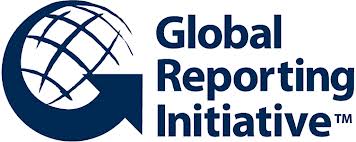 Sustainability reporting has moved from a practice undertaken only by pioneers to become standard practice for thousands of the world’s largest companies, the majority of which are using the Global Reporting Initiative’s (GRI) Guidelines as a basis for their sustainability reports.
Sustainability reporting has moved from a practice undertaken only by pioneers to become standard practice for thousands of the world’s largest companies, the majority of which are using the Global Reporting Initiative’s (GRI) Guidelines as a basis for their sustainability reports.While GRI has long been accepted as ‘de facto standard setter’ in providing sustainability reporting guidance, formal recognition of GRI’s standard role needs to be further strengthened. To this end, GRI is requesting feedback during a Public Comment Process, on intended governance changes designed to strengthen GRI’s role as a standard setter for sustainability reporting and its suitability as official reference in public policy.
Meeting the requirements of regulators
The intended governance changes are designed to ensure that GRI is globally accepted as a standard setter in all relevant forums, and to demonstrate that GRI meets all the requirements and responsibilities expected of a publicly referenced standard setter, while maintaining the core multi-stakeholder approach that is key to the legitimacy of GRI. Simultaneously, the intended governance changes recognize the need for GRI to serve the public interest.
The six main features of the intended governance structure are:
- An organizational firewall between standard setting activities and all other activities in the organization, resulting into two distinct organizational pillars;
- The creation of a separate governance of the standard setting side of GRI, including the creation of a new Sustainability Reporting Standards Board, a Due Process Oversight Committee, and an Independent Appointments Committee;
- The safeguarding of the multi-stakeholder principle, since this is one of the core elements of GRI’s principles and organization;
- The strengthening of the Due Process Protocol for GRI’s standard development;
- The establishment of an independent public funding base for standard setting activities; and
- Transparency of all standard development processes (information made available on GRI’s website).
Have your say
The Public Comment Process will serve to inform the general public about GRI’s objectives in consolidating its position as standard setter for sustainability reporting, as well as offer an opportunity to comment on the intended governance structure.
Key documents will be available on a dedicated page on GRI’s website for public information and comment during the Public Comment Process including: an overview of the intended changes; revised rules for GRI’s due process (Due Process Protocol); and terms of reference for the new governance bodies.
The Public Comment Process on GRI’s intended governance changes in order to play its role as standard setter for sustainability reporting is open until midnight (CET) on 9 July 2014. For more information and to download the consultation documents, visit the GRI website.
About GRI
The Global Reporting Initiative (GRI) promotes the use of sustainability reporting as a way for organizations to become more sustainable and contribute to a sustainable global economy.
GRI’s mission is to make sustainability reporting standard practice. To enable all companies and organizations to report their economic, environmental, social and governance performance, GRI produces free Sustainability Reporting Guidelines.
